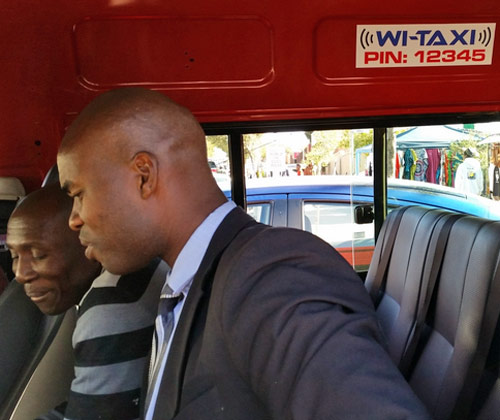Stay Connected the Safe Way
 While hardly a ubiquitous phenomenon, free Wi-Fi hotspots are spreading across South African cities, thanks to private and government initiatives. The former are focusing on restaurants and hotels, and the latter on schools and libraries.
While hardly a ubiquitous phenomenon, free Wi-Fi hotspots are spreading across South African cities, thanks to private and government initiatives. The former are focusing on restaurants and hotels, and the latter on schools and libraries.
This is good news. Wireless hotspots are essential these days. They help to improve digital literacy and to reduce the digital divide; they also make economic opportunities more accessible and generate new business opportunities. The World Bank estimates that every 10% increase in high-speed internet connections in developing countries results in a 1.3% increase in economic growth.
So, there’s no reason not to welcome free wireless hotspots. However, the amenity also has some potential drawbacks and users need to educate themselves on how to use it.
Just as you would not leave your open wallet unattended on a table in a café, you shouldn't do something similar with your laptop, tablet or smartphone. Be aware that the data you enter is potentially exposed to hackers, snoops, and all kinds of malicious characters lurking in the vicinity.
Public Wi-Fi networks are usually divided into unsecured and secured. Anyone can connect to unsecured Wi-Fi. Sometimes there is no sign-in requirement, though it is more common for the network to ask you to accept their term of use and perhaps register for an account. Secured Wi-Fi requires a password, usually available from a coffee shop attendee, hotel reception desk or university staff. Since this connection is password protected, it’s a bit more secure than unsecured.
Regardless of the type of Wi-Fi you connect to, it’s important to be aware of some basic dos and don’ts when using public Wi-Fi networks.
What to Do
Do verify the network name. Fake public hotspots are a big danger, because if you log onto one of them criminals can see everything that goes on between your device and the “rogue” router.
Do make sure you are on an encrypted page that starts with https if you’re accessing any site that asks for your log-in. Never mind if the site in question is “just” an online email service; one’s email account can tell a lot about one. Besides, many of us use one and the same passwords across channels. In any case, be aware that while the https web pages are reasonably safe over Wi-Fi, but they are still not foolproof.
Do use your device’s security tools. For example: on a laptop, enable a firewall and disable file and print sharing.
Do keep your operating system up-to-date with security patches. This is important for all mobile devices: laptops, tablets and smartphones. For the last two, also regularly update the apps you installed.
Do make sure your anti-virus software is updated.
Do sets up a good virtual private network (VPN) if you regularly access online accounts through Wi-Fi hotspots. VPNs encrypt traffic between your computer and the internet even on unsecured networks.
What Not to Do
Don’t log into your online bank or any other site that requires entering sensitive information. Rather connect using your cellular data (for example, 3G or 4G). Even better, wait till you get home, for there can always be "shoulder surfers" to watch out for, just like when you're entering your PIN code at an ATM.
Don’t use giant fonts on your screen; instead, keep reading glasses handy.
Don’t keep your device's Wi-Fi adapter always on. Switch it off when not in use to prevent your device from automatically connecting to any wireless hotspot you may pass.
Don’t try to stream video or do anything too data-hungry. Public Wi-Fi hotspots usually do not have bandwidth to spare, so be a considerate internet user.
As you can see, the list of dos and don'ts is really an inventory of sensible behaviour on the internet, heightened by a notch or two. While you do need to be aware that wireless (yes, even the wireless connection you have at home) is one of the most unsafe ways of using the internet, if you exercise caution, you will be able to enjoy the benefits of public wireless coverage without any of the pitfalls.